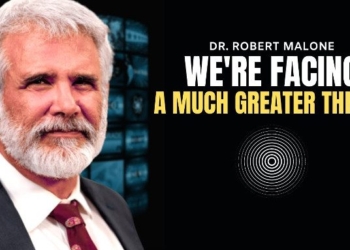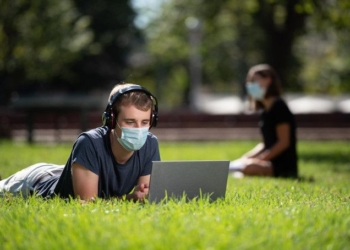
Witnessing or being involved in a traumatic event as a child can have long-lasting effects that continue into adult life. Some adults suffer from the side effects of trauma without even recalling the incident that caused them. This shows just how far-reaching the effects of trauma can be.
This is why it is important to spot the signs of childhood trauma early so that they can be helped and treated early to avoid later problems such as anxiety disorders and depression.
What is childhood trauma?
Trauma is an event that causes the child to be overwhelmed emotionally and distressed which can lead to lasting mental and physical effects. These events can either happen to the child or be witnessed by them and examples of trauma can include but are not limited to, the following:
- Car accidents or other accident
- Conflicts or war
- Physical, psychological, or sexual abuse
- Neglect
- The sudden or violent loss of a parent or loved one
- Witnessing a violent act
- Living in a crime-ridden area
As children grow up they will experience difficult and unnerving situations. Normally children will learn from these experiences and be able to cope with them. However, sometimes there could be an occasion that makes the child fear for their safety and this is where trauma can stem from.
They may witness violence in their home or the surrounding neighborhood. A parent or carer may have substance abuse issues and this will lead to neglect and sometimes other forms of abuse. A child needs to feel safe and cared for and when they witness these types of behaviors as a one-off or as part of an ongoing cycle of events it can lead to childhood trauma.
What are the symptoms of childhood trauma?
Signs of trauma can differ between children and being able to spot child anxiety symptoms can help. Some children who witness a traumatic event may recover from it quickly in a matter of days and others may take months or even longer. There can be physical, psychological, and emotional effects from being part of or witnessing a distressing incident and the symptoms can be widespread. They may include some of the following:
- Signs of depression or anxiety
- Difficulty forming attachments with others
- Sleeping disorders
- Eating disorders
- Difficulties concentrating and with attention spans
- Nightmares
- Difficulties at school
- Easily upset or startled
- Aggressive behavior
- Low self-esteem
- Feelings of guilt or shame
There are many more signs that a child may be suffering from the effects of trauma. If your child has been part of a traumatic event then you need to make them feel safe like they did before the incident happened.
How can you help to alleviate the symptoms of childhood trauma?
Once a traumatic event has occurred and immediately in that aftermath, it is important to make your child feel reassured and safe. Life needs to continue as normally as possible but while being aware that your child may be disturbed by what has occurred.
The following are some key points to keep in mind:
- Make your child feel safe
- Stay calm and if you are anxious to keep it away from your child
- Stick to normal routines
- Listen to your child
- Discuss what happened
- Avoid any news reports or disturbing TV coverage
- Distract them and have fun
The main thing your child will be wanting is to feel safe. If they have witnessed a violent incident such as a mugging then they need to know their home is safe and you are there. Hugs and cuddles will enforce a feeling of security. Even subtle childhood traumas can lead to problems later so it is important to try and reduce the effects as soon as possible.
Sticking to normal routines will reassure your child that life is normal and nothing has changed. Don’t let your child get away with anything they couldn’t before. Life should be kept along the same lines as before including meal times and playtimes. Playing with your child will help distract them from negative thoughts and over time make them reappear less and less.
If your child has questions then listen to them and discuss what happened. Do this in a natural way, don’t make time for a forced discussion, just chat naturally if and when the subject occurs.
What are the lasting effects of childhood trauma?
Childhood trauma can lead to adult anxiety and long-term pain so it must be treated early. There are direct links between a child suffering from a traumatic event or series of events and how it affects them in adult life. It is proven that childhood trauma can lead to mental and physical health problems.
Untreated childhood traumas can lead to adult attachment issues and problems with forming relationships. They can also cause a number of health problems later on. Someone who has suffered from childhood trauma will have an increased chance of the developing some of the following:
- Depression and anxiety
- Cancer
- Heart problems including palpitations
- Obesity
- Stroke
- PTSD
- Diabetes
There is also a much-increased risk of self-medicating and developing serious substance abuse problems. There is a direct link between trauma and substance abuse, and alcohol and drugs can play a big part in the adult lives of those who suffered from trauma as a child.
How does childhood trauma affect the daily lives of adults?
Childhood trauma can impact directly the quality of life that is enjoyed by that person as they grow older. It can be felt in the workplace and their personal life. At both work and in social situations they may have difficulty with trust and responsibilities. They may struggle to cope with adversity and struggle to be intimate with partners.
If a child suffered from physical or emotional abuse they may have difficulties in their personal and romantic relationships later on. They are more likely to enter into disastrous relationships and have low self-esteem and self-worth. Confidence will be a struggle and this will lead to poor quality of life.
Eating disorders from childhood trauma
Another problem that can arise from early trauma is binge eating, bulimia, and anorexia among other disorders. Just in the same way people use alcohol or narcotics to alter their mood, many people use food in the same way. It is generally cheap, available and it is legal so it is a convenient way to manage emotions. It is, however, deeply unhealthy and can lead to many health problems.
Therapy to improve the effects of childhood trauma
As you can see there are many effects that childhood trauma can cause such as eating disorders and addiction. Trauma resolution therapy is a way to assist the victim with these areas and more to help them improve the quality of their lives.
Trauma therapy is designed so that the person can identify a traumatic event that they may not consider to be the cause of their symptoms and then bring it to the surface. Through the use of controlled environments and professional therapists, that person can express their emotions through art, act out parts of the event and write about it. They can even write to the person who caused that event to express how they feel. This helps to let all the pent-up emotions and feelings come out and the person to start to think more positively and enjoy a healthier life.
Summary
Childhood trauma is incredibly damaging and left untreated it can cause misery and depression in adult life. Different treatments such as CBT or cognitive behavior therapy can help and through trained professionals, individuals can have happier and more fulfilling lives away from the shadow of their trauma.




![You Will Never Lack Willpower Again! | Here’s How You Can “Surf the Urge” [8-MIN VIDEO]](https://consciouslifenews.com/wp-content/uploads/2022/11/Kelly-McGonigal-350x250.jpg)









